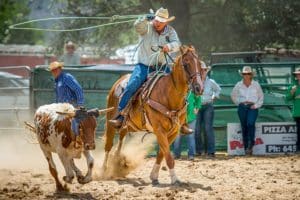California Gelding Confirmed With WNV
The horse marks the state’s second confirmed equine West Nile virus case in 2021.
Share
ADVERTISEMENT

WNV transmission occurs when infected mosquitoes feed on animals, as well as humans, after having fed on infected birds. | Photo: iStock
On Aug. 6, officials at the California Department of Food and Agriculture (CDFA) confirmed a vaccinated 3-year-old Quarter horse gelding from Fresno County with West Nile virus (WNV). The gelding experienced onset of neurologic clinical signs on Aug. 1. Signs included ear, muzzle, and eyelid twitching; hypersensitivity; and reactivity. The horse is reportedly recovering.

RELATED CONTENT | Health Alert: West Nile Virus in Horses (Video)
This marks California’s second confirmed case of WNV in an equine in 2021. The other positive horse was also from Fresno County and is still living.
About West Nile Virus
WNV transmission occurs when infected mosquitoes feed on animals, as well as humans, after having fed on infected birds.

Clinical signs of WNV in horses include:
- Mild anorexia and depression
- Fine and coarse muscle and skin fasciculation;
- Hyperesthesia (hypersensitivity to touch and sound);
- Changes in mentation (mentality), when horses look like they’re daydreaming or “just not with it”;
- Occasional drowsiness;
- Propulsive walking (driving or pushing forward, often without control);
- Spinal signs, including asymmetrical weakness; and
- Asymmetrical or symmetrical ataxia.
West Nile virus has no cure; however, some horses can recover with supportive care. Equine mortality rates can reach 30-40%. The American Association of Equine Practitioners includes WNV as one of the core diseases all horses should be vaccinated against at least annually.
Share
Related Articles
Stay on top of the most recent Horse Health news with

















